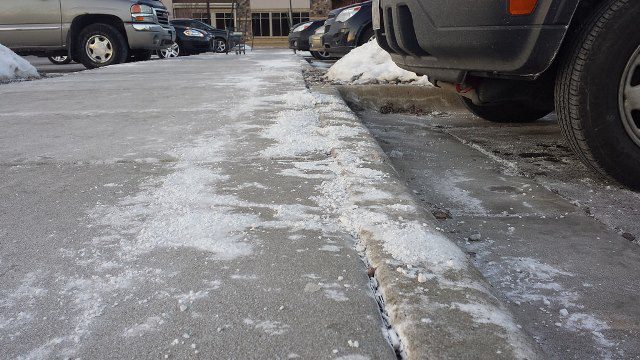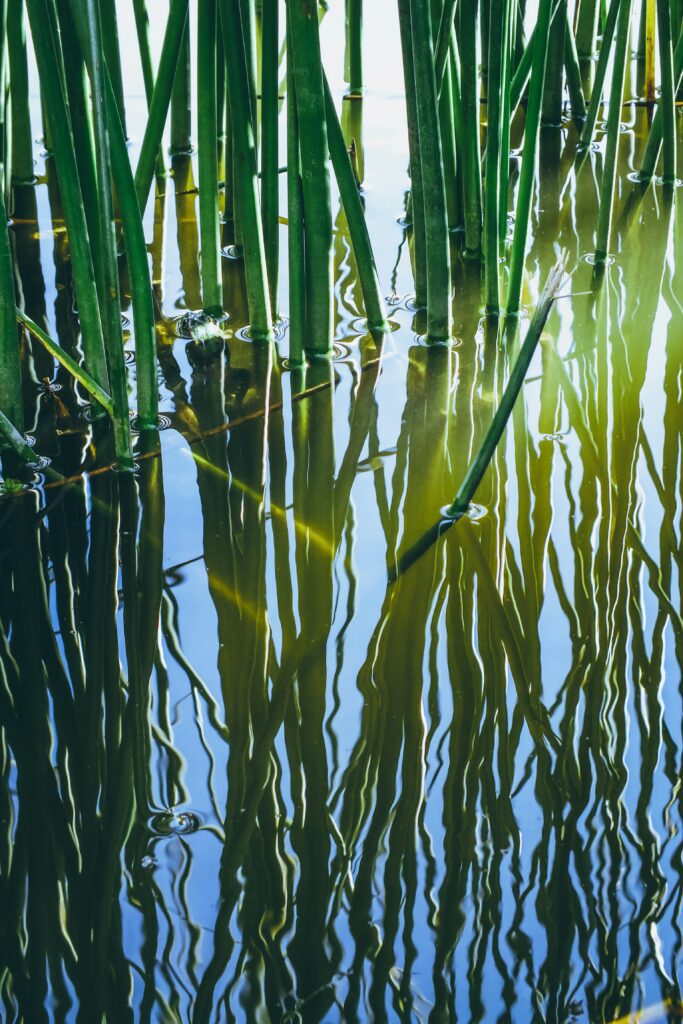This winter, a sneaky, white culprit right under our feet is assaulting our rivers and lakes.


Road salt is applied to roads, sidewalks, walkways and parking lots to prevent slips, falls, and accidents. But the chemicals in rock salt are toxic and can have serious impacts on freshwater ecosystems. Salt is a necessary evil. However, in most cases, we’re overdoing it and applying far too much. As a result, all the extra salt gets washed into nearby storm drains and then creeks, rivers and eventually lakes, including the Great Lakes.
Ontario’s freshwater becoming too salty for species
All of this salt is making our freshwater less fresh. Some points of the year, Ontario’s waterways have so much salt pollution that they’re as salty as the ocean! For example, Levi Creek in Mississauga has experienced very high chloride (salt) levels since last November. And it’s making conditions unsafe for freshwater species.
Less road salt doesn’t mean less safe sidewalks
It only takes less than a cup of rock salt to cover a sidewalk slab. However, we’re using 30 to 100 times more than what is needed to keep people safe. Experts point to business owners and contractors who put down large amounts of salt as the key culprits. Society has come to associate large piles of salt with safer sidewalks. And the fear of being sued results in many contractors applying way too much. The good news, however, is contractors can take certification programs to learn how to apply the right amount of salt to keep people and the environment safe. The Smart About Salt Council offers training on how to balance public safety and environmental health.
Also, pilot projects in the GTA show that we can use far less salt with no impact on public safety. At Ryerson University, for example, a #LessSalty pilot project on campus reduced rock salt use by 4,000kg last year.
Government action desperately needed
While the above initiatives are a good step, government intervention is desperately needed in order to stop salt contamination in Ontario’s waterways. The Ontario government, in their Made-in-Ontario Environment Plan, listed salt contamination in freshwater as a key priority to work on. So far, little action has been taken. Every winter, chloride (salt) contamination gets worse and our freshwater rivers and lakes can’t wait. We need action now.
Everyday people like you and I also have a role to play. We can encourage businesses to get Smart About Salt certified and to use less road salt. And more importantly, we can take action by sending a letter to the Minister of the Environment, Conservation and Parks Hon. Jeff Yurek and the Parliamentary Assistant MPP Andrea Khanjin asking them to address road salt contamination.
The Ontario government needs to act now and follow through on their promise to address excessive road salt in our province’s freshwaters.
Check out #LessSalty on Twitter to stay up to date on salty news.








